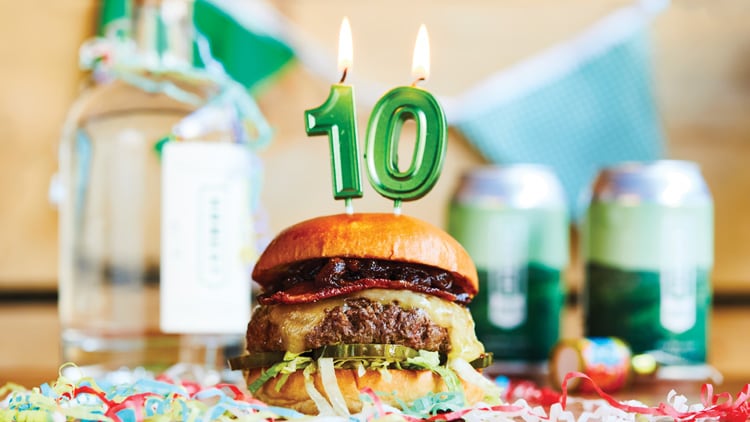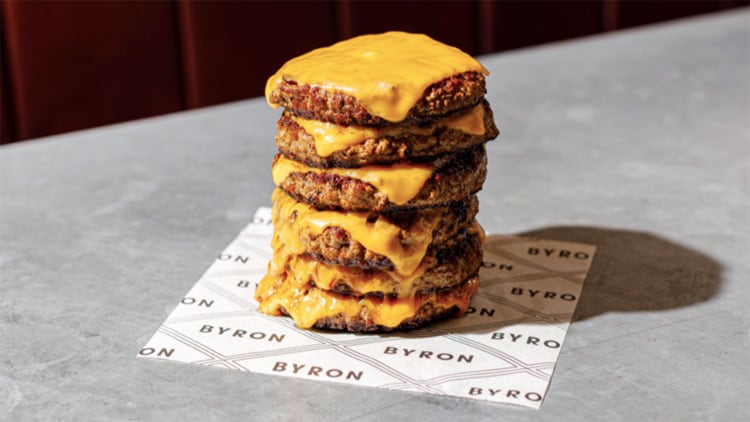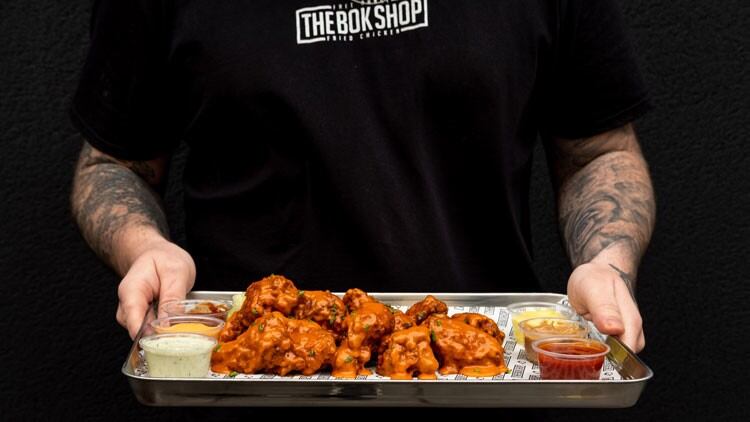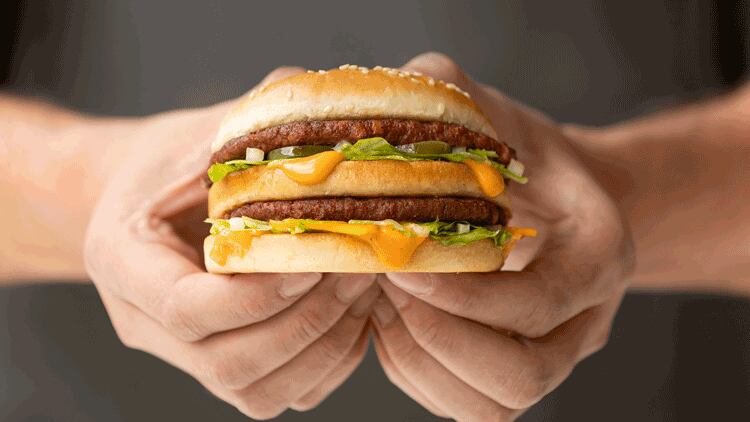Having originally established the Honest concept in a pop-up tent in Brighton in 2010, today the pair operate an estate of around 45 restaurants. Over a decade on the duo insist they have plenty more to achieve, including a mooted move overseas.
Congratulations on the 10-year milestone. Did you ever envisage you’d reach this point?
Philip Eeles: Technically we started the business about 11 years ago, cooking at a friend’s party in a tent in a field in Brighton. I think it’s safe to say that back then we had no concept of what we were really planning to do. We weren’t even thinking about moving into restaurants.
Tom Barton: There was no grand master plan. It was just ‘let’s do something we enjoy’ and see what happens. I always laugh when I see concepts come out and say they won’t to grow to 50 sites or something in three years, but 99% of them don’t. We didn’t think a week ahead, let alone years ahead; it was about being in the moment and doing the best with what we had.
Why do you think Honest Burgers is so popular?
TB: Our approach is much more ingredients led, while a lot of other players in the space are more experience focused. We offer a stripped back concept and spend a lot of time talking about our sourcing and suppliers. Our patty is styled on a homemade burger – it’s big, chunky and a little rough around the edges, but the quality is really high, and people love it.
What’s the biggest mistake you’ve made over the past 10 years?
TB: Doing brunch is a pretty fucking big one. We spent years trying to retrofit a complex menu into a business that’s famed for not having one, until we realised there is no point and we should just do burgers.
PE: It’s funny now. I still stand by the food. All the values we have as a business regarding provenance were there, and I think it was one of the best full English breakfasts out there. But we were a burger restaurant, and it messed with a core principle of ours, which is to keep things simple.
"We realised before we even opened our first site that most customers just wanted a bacon cheeseburger, and so our focus was on making our bacon cheeseburger the best we could"
It’s noticeable how tight you’ve kept the menu all this time…
TB: That was one of the most conscious decisions we made in the early days. Even if we had had a bigger kitchen in Brixton [the first restaurant], we would never have had a huge menu.
PE: We realised before we even opened our first site that most customers just wanted a bacon cheeseburger, and so our focus was on making our bacon cheeseburger the best we could. We have specials now that allow us to push the envelope a little, and the Local Programme (each Honest Burgers site serves its own signature burger, created by that restaurant’s kitchen and management teams, and developed around locally sourced ingredients) means technically we do have 45 other burgers, they’re just not sold everywhere.
Provenance of ingredients has been a crucial part of the Honest Burgers brand, why is that?
PE: Telling people where their food comes from is really important, particularly when it comes to meat. Still today in a lot of places they don’t tell you where their meat is from; either because they don’t know, or they don’t want you to know.
TB: Using good ingredients has always been key. Our menu is fundamentally condensed down into meat and potatoes, and for both of those things we work directly with British farmers. Half the problem with the food supply chain in this country is there is no transparency, so for us it’s about championing those producers and giving them the recognition they deserve.
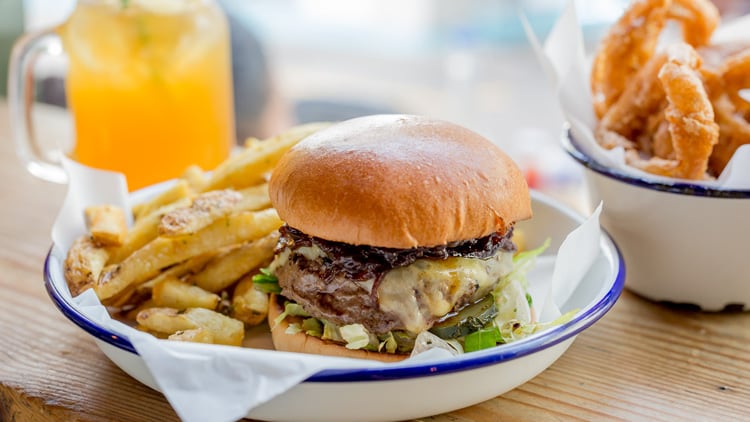
How has your expansion strategy developed?
TB: It’s essentially stayed the same. We want every venue to feel like it’s a neighbourhood restaurant. We don’t want an Honest on every corner. We like sites with character and history; you won’t find us in a shopping centre. There’s always been some disagreement about that on the board; you make a shit load of money in a shopping centre, but they can often feel soulless and it wouldn’t be right for us.
The pandemic saw you pivot to the ‘makeaway’ market and launch a spin-off brand called Honest Chicken. How did both of those come about?
TB: We saw Patty & Bun and Pizza Pilgrims doing the at-home stuff really well, so we gave it a go too. It did exactly what it needed to do, which was keep our teams motivated and in work. Furlough was a dark place for a lot of people in our industry. Being told to stay in your house all day when many live in shared accommodation with only a bedroom to themselves, that’s not a healthy place to be for weeks on end.
PE: It was the same with the Honest Chicken pop up – trying to get people off furlough and into work. The concept came about as we needed the site to appeal towards a different customer base. It’s not something we saw as a long-term project.
“I’m really feeling the weight of the word Honest and living up to that”
Unlike a lot of casual dining brands, you don’t appear to want to go down the ‘contactless’ route. Why is that?
PE: For us, a contactless customer journey is a painful experience. Hospitality is about having human interaction. We’re facing a massive labour market shortage at the moment across the sector; the worst we’ve ever seen. And there are some businesses actively reducing front-of-house roles to just serving drinks and clearing plates. Does anyone think they’re going to attract new people to the industry with jobs like that? It’s not what customers want, and it’s not what staff want either.
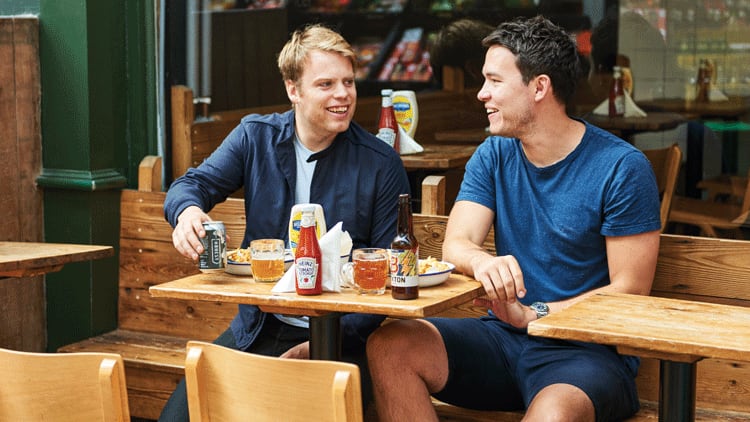
How has the burger market changed since you first opened in Brixton?
TB: One of the biggest shifts has been the rise of plant-based substitutes. I remember being told years ago that I needed to start thinking about vegan dishes and I thought it would never be a real part of our offer. But we’ve worked hard to develop it, and our plant sales are massive now. It’s an integral part of our business, and something we’re going to continue focusing and building on going forwards.
What are your hopes for the next 10 years of Honest Burgers?
PE: In terms of expansion, we’ve got a few more places around the country we want to go, and I think then we’d both like to finally have a bash at the international market. Europe would be the sensible option, but part of me would like to try and take on the US.
TB: I want Honest to become an industry leader for championing proper regenerative agriculture and to have complete transparency about where everything on our menu comes from, beginning with the beef. We need to smash down the barriers between farmers and the plate of food that comes from their livestock and produce. I’m really feeling the weight of the word Honest and living up to that. I think we’re good, but we’re not there completely and in the next 10 years I want to change that. We spent the past decade growing up and finding our feet; now we’re there, and we’re going to show the world what the word Honest really stands for.

